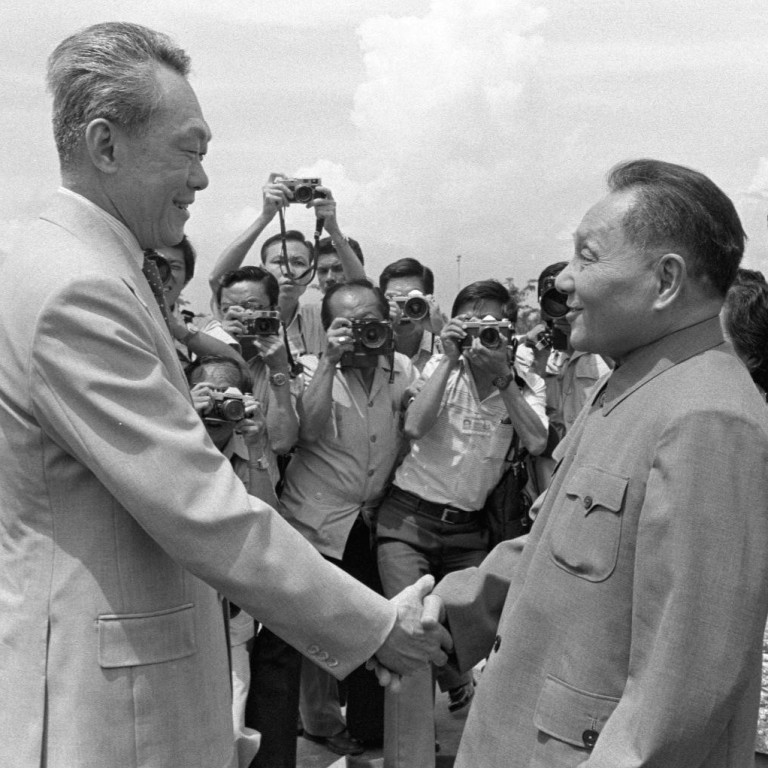
Does China still have anything to learn from Singapore?
- The Lion City has long been the top training ground for Chinese officials, but enrolment is dwindling
- In some areas – like mobile payments and artificial intelligence – the pupil has become the teacher
Singapore has since become Beijing’s top overseas training ground, with more than 50,000 Chinese officials and cadres having flocked to the city on study trips and training programmes since the mid-1990s, according to Singapore’s foreign affairs ministry.
But enrolment has taken a dip in recent years, something analysts attribute to China’s economic rise and technological advancement.
Bo Zhiyue, a professor at the Xian Jiaotong University in the northwestern Chinese province of Shaanxi, said Beijing had “its own characteristics and it is no longer viable to duplicate the Singapore model”.
He said there had been a shift in the focus of Chinese officials; once they flocked to Singapore to learn about its economic policies and urban planning, because China was interested in how to plan and manage cities.
“But now, interests have diversified. They recognise Singapore as pretty good in finance, banking and tourism,” he said.
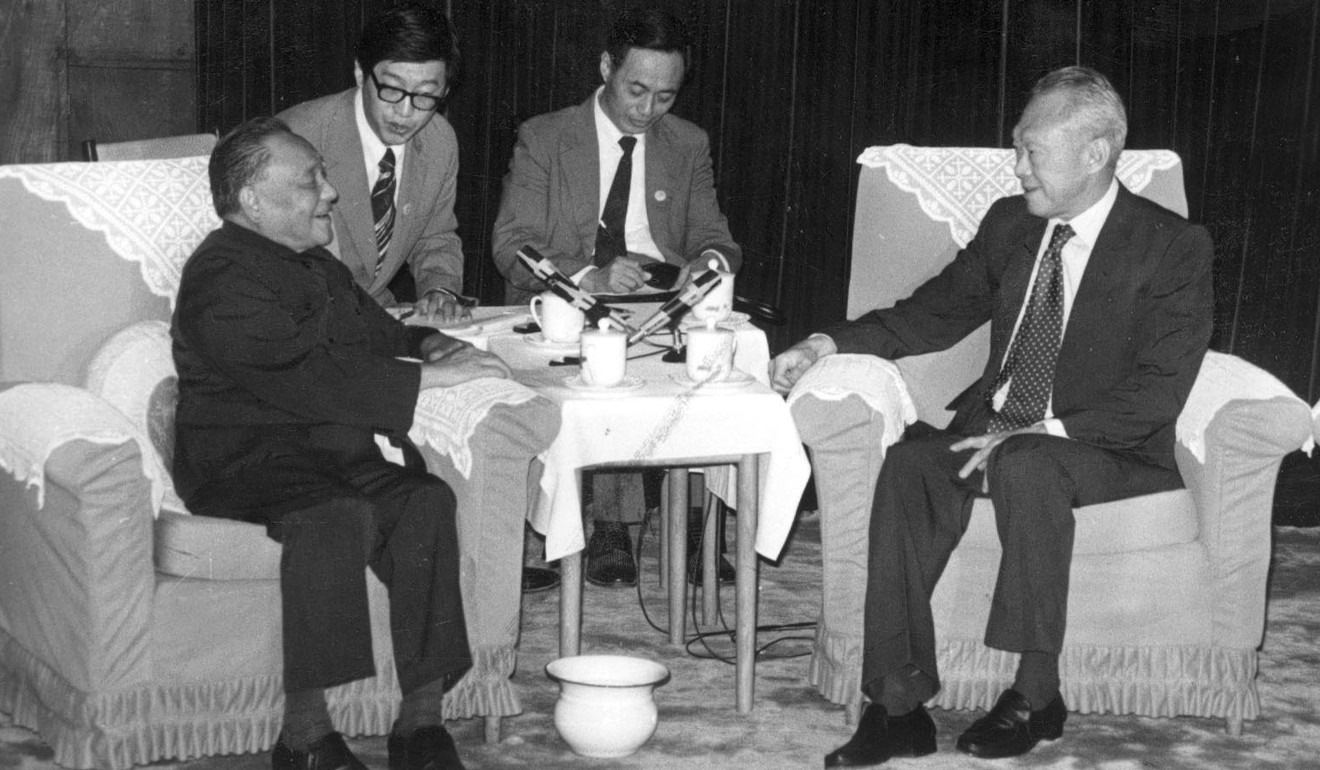
Bo said even though Singapore and China bore some similarities, including a “one-party system”, Chinese officials who arrived in the Lion City nowadays found they had “not much to learn”.
“There are many more social issues in China to deal with than in Singapore. Singapore is pretty well-managed and there are only a few major issues between the people and the government,” he said.
“But in China, there are local and county-level governments and there can be conflicts that arise.”
Indeed, admissions figures for popular programmes at Singapore’s top two universities show that fewer government officials from China had enrolled in recent years.
Mainland Chinese students best in world as Singapore slips down rankings
Courses related to urban management, social governance and public administration at Nanyang Technological University (NTU) and the National University of Singapore (NUS) have traditionally been the biggest draw.
NTU’s Nanyang Centre for Public Administration (NCPA) said it had noticed a “general decline”, from 80 students at its peak in 2012, to a “stable” number of 55 in recent years.
NCPA has two Chinese-language master’s degree programmes in public administration and managerial economics, and they have been dubbed “Mayors’ Classes” due to the high number of Chinese mayors enrolled in them. Professor Liu Hong, director of the NCPA, said more than 1,400 officials had graduated from the Mayors’ Classes since their inception in 1998, and most of the participants were “mid-level central and local government officials” as well as mid-level managers at China’s state-owned enterprises or universities.
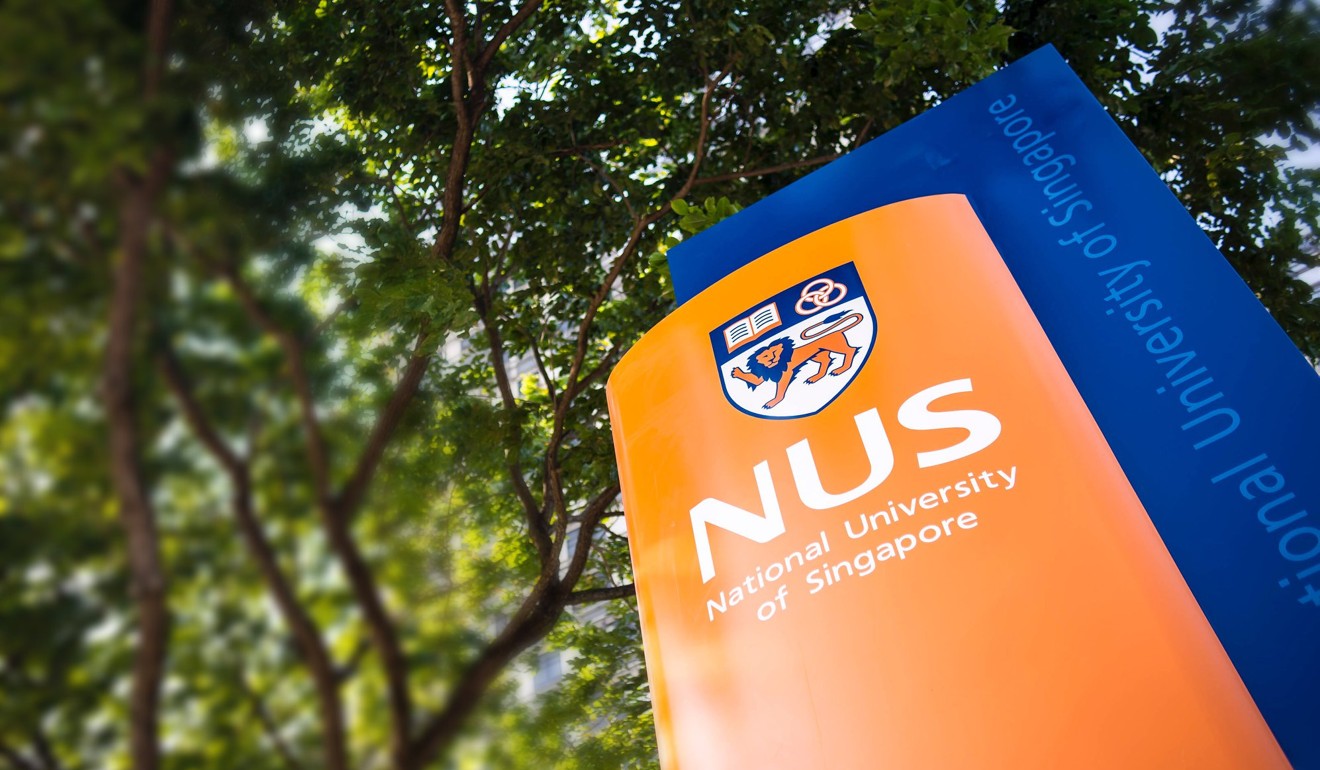
Meanwhile, NUS’s Lee Kuan Yew School of Public Policy (LKYSPP) accepts an average of 40 students from mainland China out of its annual intake of 200, with public policy, international affairs and public administration the most popular.
The LKYSPP also launched a new course – Senior Fellowship in Public Service Programme – this year, tailored for “senior-level leaders” in the public, private and non-profit sectors.
The Chinese officials declined an interview with This Week In Asia .
CHANGING COURSE
Liu of NTU said Singapore remained a favourable study destination for Chinese officials due to several factors, including the fact that the city state was a globalised economy and it had made “impressive progress” in smart-city initiatives.
“Singapore is known internationally for having an effective, clean and modern political governance and social management system,” said Liu, who is also the chair of NTU’s School of Social Sciences.
Chinese officials enrolled in these courses regularly meet Singapore’s top officials and visit government agencies such as the Urban Redevelopment Authority and Monetary Authority of Singapore.
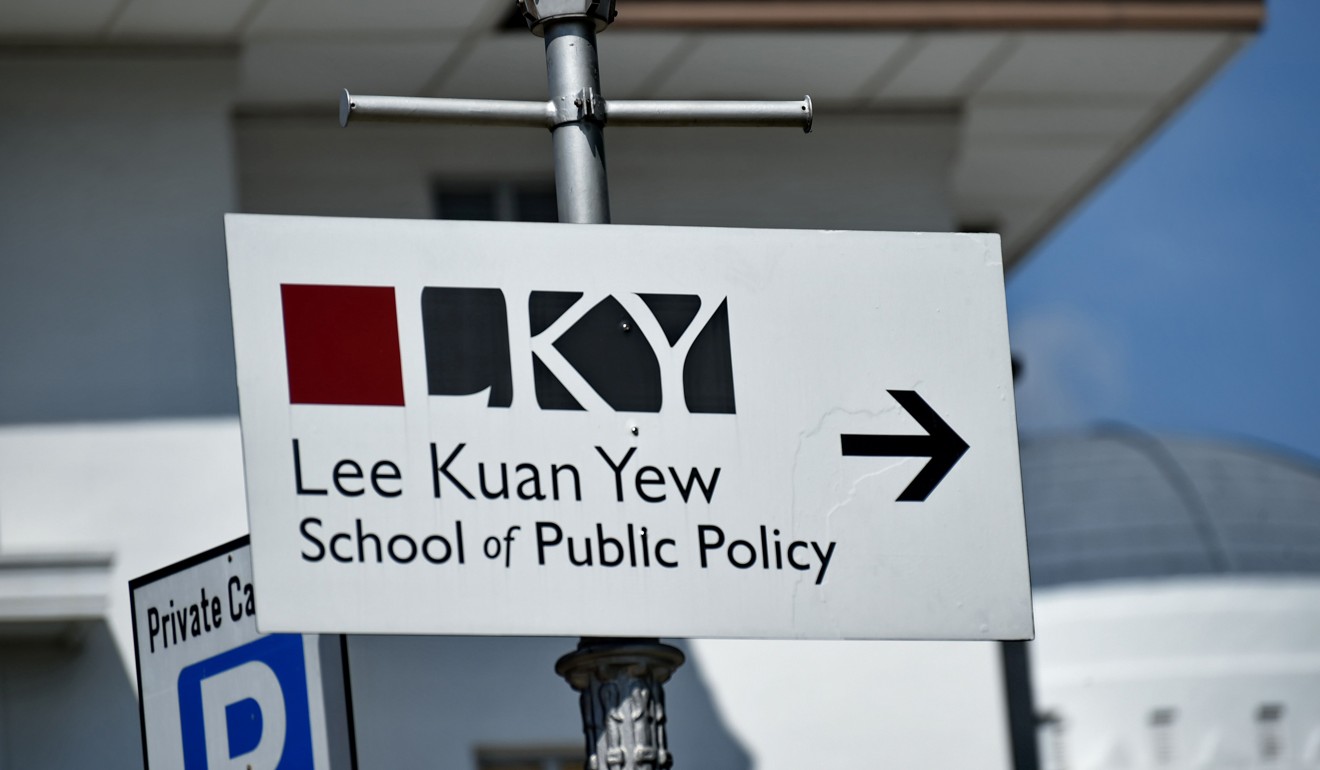
Victor Gao, previously a translator for Deng and now vice-president of the Beijing-based Centre for China and Globalisation, said party cadres were also keen to learn how Singapore’s state investment firm Temasek operated, and how it invested in private enterprises in Singapore.
“Singapore is a very major country to receive these government and party officials, and there have been very successful training courses set up by the Singapore government and universities,” he said, adding that the Chinese government also sent officials to universities such as Harvard and Yale.
Next battleground in US-China tech war: undersea internet cables
“Since then, there has been tighter control over government officials going abroad. It has been nearly impossible to go abroad without approval,” Bo said.
He said lower-ranking officials had to limit their time abroad to less than a week a year; higher-ranking ones had more leeway.
But this did not suggest Sino-Singapore ties had soured, Bo said.
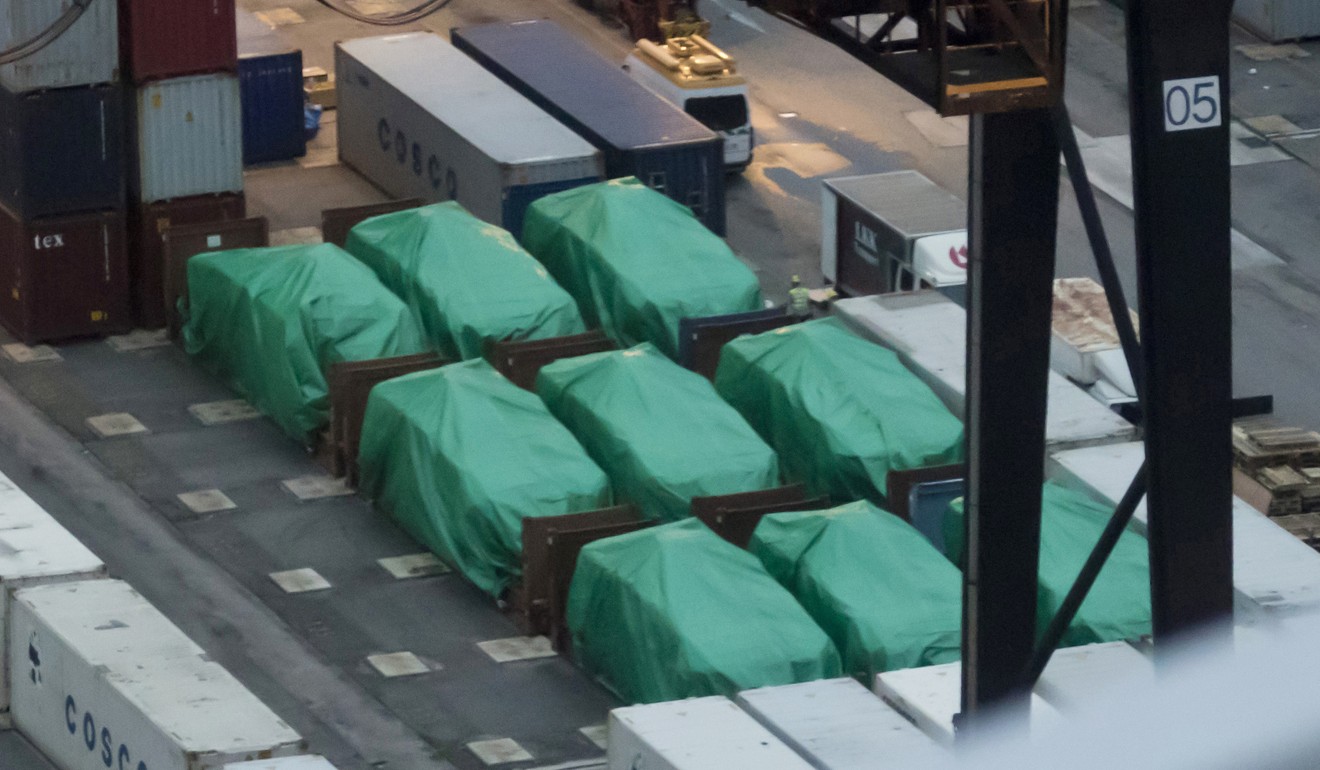
Things have taken a positive turn since then, with leaders from both sides stepping up exchanges.
Just last week, officials from Suzhou visited the city state, and hailed the China-Singapore Suzhou Industrial Park as being an example of thriving ties. Younger Singaporean ministers have made frequent trips to Chinese cities in recent months.
Singapore’s fighter jet unit on Guam a nod to US ties amid Beijing closeness
MUTUAL LEARNING
Given both nations’ fast growth in the past decade, Sun Xi, a China-born alumnus of the LKYSPP, said that there was a “new era of mutual learning”.
Sun said Singapore was “realising the urgency” to learn from China, especially in areas like mobile payments and artificial intelligence, where China is a leading player.
This was in line with what Singapore’s former deputy prime minister Teo Chee Hean said while visiting Shaanxi in April this year.
Even though Sun said China had much to learn from Singapore in terms of social development and governance, Bo said China-Singapore relations had evolved from being learning-driven to being “activity-driven”, with interactions now involving investments and business collaborations.
Falling enrolment by Chinese officials also suggested China was “looking inward”, Bo said.
“I don’t think China is learning anything from anybody else right now in major ways,” he said. “China now has become so confident that they are willing to just learn from themselves and even export some of their knowledge and experience abroad.” ■

